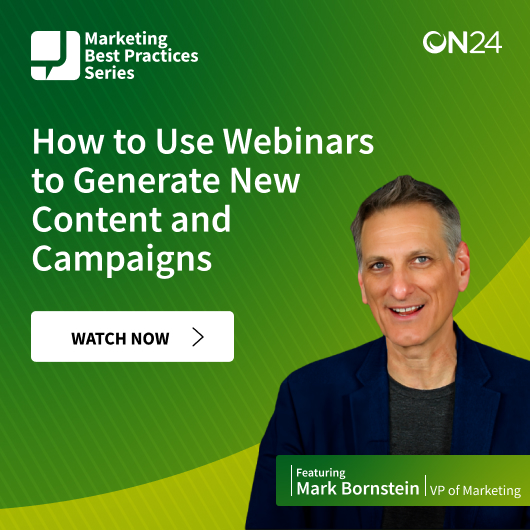10 Reasons Why Content Marketing Is Important for your Business

The Importance of Content Marketing in Today’s Digital Landscape
Content marketing is a crucial element of any marketing mix. It helps craft brand narratives and guides audiences through the buyer’s journey.
It’s a powerful, if sometimes overlooked, tool marketers can use to engage audiences across the globe.
A Quick Look at What Content Marketing Means for Marketers
Every digital marketing campaign makes use of content marketing on some level. Whether written or visual, content marketing assets are used to deliver important product, service or brand-focused messaging.
As a strategy, content marketing drives engagement across a variety of channels. For example, on social media, content marketing activity can attract attention to the brand. It can also drive clicks from search engines and build trust and credibility among an audience that wants to learn what your business has to offer.
Why is content marketing important, especially for B2B? Well, according to Forbes, the content marketing industry is due to be worth an estimated $600 billion by the end of 2024 – a huge uptick from previous years.
So, how can you get started? Here are nine reasons why content marketing is essential for your business.
1. Content Marketing Helps Boost Brand Visibility

Creating content tailored to specific interests and needs can attract and retain audiences over time. There are a few ways you can use channels — owned or paid — to promote your assets and boost your overall content marketing efforts.
Let’s take a look at a few now.
Sharing your content on social media amplifies your brand’s reach, encourages shares, likes and comments. It also spreads your message to broader networks. Good quality content can also work wonders for your SEO efforts, too. Considering that more than 75% of content consumption in B2B industries starts through organic search, having findable content available for indexing by Google and the other major search engines will help you reach new users much faster.
Once these people reach your website, they’ll likely explore your company’s offerings. This helps reinforce their understanding of your brand and encourages them to return for more if they’re in the market for related solutions or information.
2. You’ll Boost Customer Engagement
Content unique to your brand will help you foster more meaningful interactions with prospects and drive customer engagement. By creating content that educates, entertains or solves problems, you can deepen your connection with audiences, providing them with the right information at the right time to help them along the decision-making process.
From quizzes, polls and webinars to blogs, videos, social media updates and newsletters, you can reach and engage with your “people” by producing targeted content.
The key is to provide the mechanisms for a two-way conversation wherever possible, as this will encourage your customers to take a more active role in your brand; comments, social mentions and online surveys all play an important role in holding your customer attention and increasing brand loyalty.
3. You’ll Support Your Sales Funnel

Tailor your content to meet your prospects where they’re at, and you’ll have them hooked on what you offer from day one.
Educational content, such as those found in e-books, whitepapers, reports and webinars, helps raise awareness of the solutions you’re providing at the top of the sales funnel (i.e., when the buyer is unlikely to know of your company and not yet conscious of how you can help them).
Gated content can further support this process by asking users to share contact information for exclusive and valuable insights.
After a while, these prospects can be nurtured and presented with content that is further down the funnel, like testimonials, case studies, product demos, actionable templates, and any other content showcasing the real-world use of your product or service.
4. You’ll Generate More Leads
Content attracts potential customers to your brand by addressing their specific interests and pain points.
Once you’ve got their attention, the key to generating more genuine leads through your content is to always include a clear call to action (CTA) so the reader knows where to go for more information or to make that all-important purchase.
5. You’ll Educate Your Audience
Greater trust equals improved loyalty, a higher volume of referrals, and a brand that’s perceived in a more positive light. To create this brand name, you need to teach your audiences what you do, how it works, why it’s different, and how it can benefit them – these concepts you can explore with your content.
Well-crafted content breaks down complex ideas into digestible pieces, making it easier for audiences to grasp and apply the information to their own lives. This is particularly useful for the technology, finance, or healthcare industries, where topics can be intricate and overwhelming and difficult to understand.
Detailed guides, comparison pieces and case studies can give prospects more confidence in their options, help them make more informed decisions and should all be used as part of your educational strategy.
6. It Builds Customer Loyalty

When audiences find consistent value in a business’s content, they are more likely to remember and engage with that organization in the future.
And repeat visits don’t just drive up your content’s performance metrics – they also help create loyal brand advocates who appreciate your commitment to meeting their needs.
Certain strategies will help to maintain this loyalty. For example, offering premium or exclusive content to loyal customers will make them feel valued and appreciated. Robust customer education programs that deliver ongoing training and introduce hot-off-the-shelf products or solutions will keep your brand front of mind.
7. You’ll Become a Thought Leader in Your Field
Providing relevant information to your niche will help establish your credibility and position you as an industry leader.
With so much so-called thought leadership content circulating on the web, the trick to cutting through the noise is to share deep expertise that offers a new take on a popular subject or insights that simply cannot be found elsewhere. Stories, anecdotes and experiences from your leadership teams will help to put your ideas into context and draw the reader into your narrative. Media outlets often pick up soundbites like these for a hot take on a subject, resulting in even more exposure for your brand and its key people.
It may take some time and research to produce — but the aim of sharing thought leadership content is to earn trust, differentiate you from your competitors, and establish you as the go-to source for advice. Journalistic blogs and articles work well, as do more in-depth interviews, research studies and benchmarks.
8. It’s a Cost-effective Marketing Strategy
According to Forbes, many small businesses spend at least $1,000 per month on content marketing because they know it’s one of the most effective ways to attract attention and drive leads.
Measuring your content marketing campaigns’ return on investment (ROI) can be as straightforward as analyzing metrics such as the traffic generated to the asset, how many leads have been generated directly from that asset and how many of these marketing-qualified leads have converted into sales-qualified leads. You’ll also need to record how many dollars have been earned for every dollar spent.
Generally, you should expect a cost ratio of 5:1 – i.e., $5 is earned from every $1 spent. That’s in line with — and often better than — what you’ll see from a well-established pay-per-click campaign with a substantial budget.
There are certain advantages that can’t always be directly accounted for, too. Remember, content marketing creates sources of information with longevity and value; resources that will continue to attract and engage audiences over time, without needing to invest in advertising continually. As we mentioned earlier, indexable content can also improve your search engine visibility, eventually optimizing your efforts on paid search channels.
9. It’s Easy

The best part about content marketing is that it doesn’t have to be difficult. In fact, with the right solutions in place, you can take one piece of content and repurpose it into different formats.
For example, a webinar can do more than provide audiences with an engaging experience. Marketers can repurpose clips from the event into tutorials, take the event’s audio and transform the event into a podcast, and — with generative AI — use the transcript to rapidly draft blog posts, e-books and more. You can even use the event’s slides and create infographics and other content like carousel ads.
If you’re interested in how you can make content repurposing a central part of your content marketing strategy, check out how the ON24 Intelligent Engagement Platform’s AI-powered Analytics and Content Engine can help you create better content faster.
10. You’ll Invest in Your Business’s Long-term Sustainability and Growth
For all the reasons listed here — and many more, in fact — A solid content marketing strategy will help to set your organization up for future success. This is why content marketing is so important for B2B enterprises — once your content is out there, it will support your promotional activities for a long time.
To create a bank of high-performing content and achieve the maximum possible ROI from your content marketing spend, we recommend:
Researching your audience’s needs
Don’t rely on your current understanding of your customer’s challenges to guide your content strategy! Check-in with the people who are buying from you to find out what’s relevant to them and what the key obstacles are to making a purchase with you. Then, produce content that directly addresses these aspects.
Focus on Evergreen Content
Timely insights and company or industry updates have their place – but content that’s going to stand the test of time will deliver the most value in the long run. How-to guides and best practice templates will have the most longevity and should be optimized for organic search and social media.
Diversify Your Content Plan
Written content is useful, but quality video typically gets more engagement. You could explore using podcasts, infographics, and interactive events as part of your content plan to keep your output fresh and impress a broader audience. Be prepared to adapt your content to platforms and formats.
Learn how ON24 can support your content marketing strategy by facilitating continuous content journeys, on-demand experiences and achieve longer-term engagement. Learn more here.

